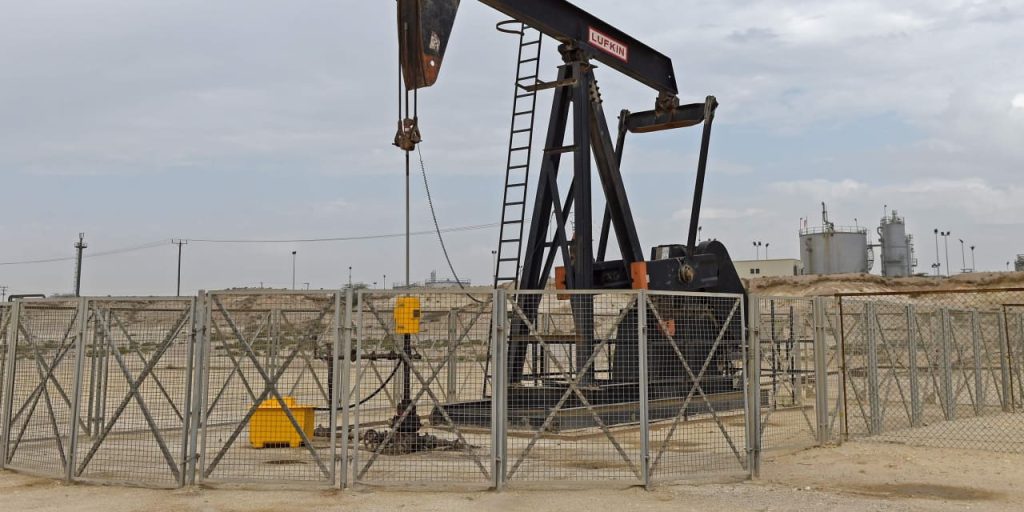Oil futures settled lower on Tuesday afternoon, hovering near a three-month high after U.S. traders returned from the Presidents Day holiday weekend, while downside was seen limited by continued worries over the Middle East as Iran-backed Houthi rebels continued to attack cargo ships.
Price moves
-
West Texas Intermediate crude for March delivery
CL.1,
+1.13% CLH24
fell $1.01, or 1.3%, to settle at $78.18 a barrel on the New York Mercantile Exchange. It was the U.S. oil benchmark’s second-highest settlement in 2024 after closing Friday at the highest since Nov. 6, according to Dow Jones Market Data. WTI futures didn’t settle Monday due to the holiday. -
April WTI
CL00,
+1.13% CLJ24,
+1.13% ,
the more actively traded contract, was off $1.42, or 1.8%, to finish at $77.04 a barrel. -
April Brent crude
BRN00,
+0.73% BRNJ24,
+0.84% ,
the global benchmark, was off $1.22, or 1.5%, to end at $82.34 a barrel. The contract also booked its largest one-day dollar and percentage decline since Feb. 2, according to Dow Jones Market Data. -
March gasoline
RBH24,
+0.91%
shed 2.5% to finish at $2.2774 per gallon, while March heating oil
HOH24,
+0.18%
lost 2.7% to end at $2.7315 a gallon. -
Natural gas for March delivery
NGH24,
+1.27%
fell 2.1%, settling at $1.5760 per million British thermal units.
Market drivers
U.S. crude-oil futures dropped by more than 1% on Tuesday to settle below a three-month high, as tensions continued to escalate in the Middle East while various countries increased efforts to secure a cease-fire between Israel and Hamas in Gaza.
Yemen’s Houthi militants said they had attacked the Rubymar cargo vessel in the Gulf of Aden, news reports said. The vessel was seen at risk of sinking. A U.S.- and U.K.-led coalition has conducted a number of airstrikes against Houthi targets in response to drone and missile attacks in the region that have forced shippers to reroute to avoid the Red Sea. The Houthis vowed to continue their attacks.
March WTI crude expires Tuesday, which means there could be volatile price action as traders scramble to exit positions in the prompt month, StoneX’s Kansas City energy team, led by Alex Hodes, said in a Tuesday client note.
Market participants may also show renewed concern toward potential supply disruptions, Ricardo Evangelista, senior analyst at ActivTrades, said in a note. “With concerns regarding demand gradually waning and geopolitical tensions persisting, there is potential for further escalations in oil prices on the horizon,” he said.
Elsewhere, China on Tuesday made its largest ever cut to mortgage rates as authorities attempt to support the country’s struggling property sector.
Last week, U.S. crude futures settled at the highest level since early November after Israel launched strikes in Lebanon and threatened to invade Gaza’s southernmost city of Rafah if the remaining Israeli hostages are not released by Hamas. Meanwhile, investors seemed to largely shake off concerns about a batch of hotter-than-expected January inflation data and a bearish oil-demand growth forecast from the International Energy Agency.
Read the full article here
















